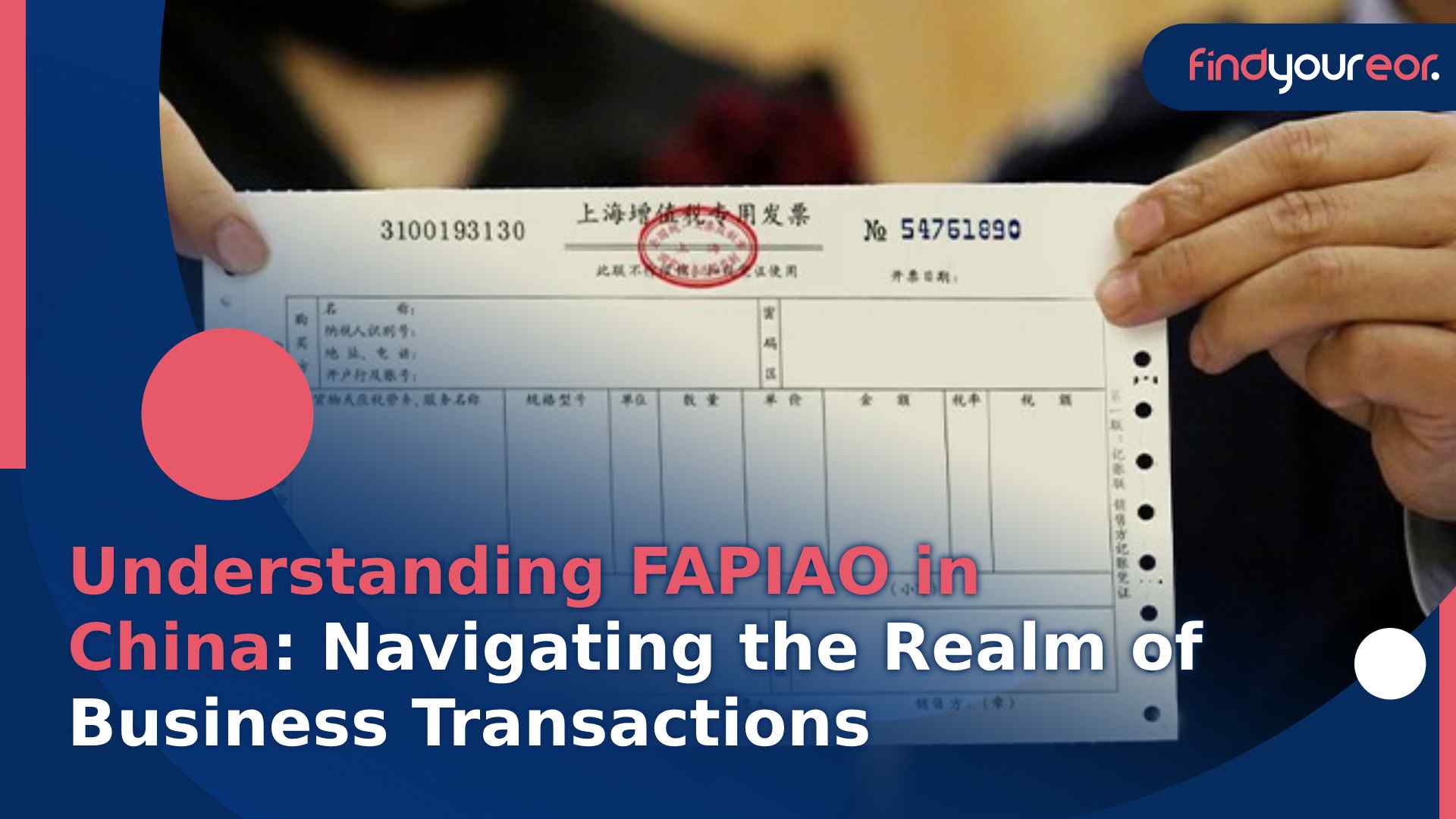Foreign invested enterprise: Your new guide 2023
Last update: October 18th 2023
A foreign invested enterprise is a company that is partially or entirely sponsored by foreign investors, most typically from Asia. When considering investing in a foreign organization, corporations must analyze and adhere with the legal requirements necessary.
In this article, we will give you a thorough explanation regarding foreign invested enterprise. The two most important things are compliance and research. Here, you will be able to learn what a foreign invested enterprise is and why it could be advantageous for your company.
What is foreign invested enterprise?
A Foreign Invested Enterprise (FIE) is a company that is established in an overseas market by foreign investors. FIEs are typically established to take advantage of the opportunities offered by a foreign market, such as lower costs, access to new customers, or access to new technologies. FIEs are often established by multinational corporations (MNCs) looking to expand their global reach, as well as by small businesses seeking to diversify their customer base.
A FIE foreign invested enterprise is usually established by registering the company with the local government in the host country. The registration process typically requires the filing of documents such as the corporate charter, articles of association, and other legal documents. Once the registration is complete, the FIE is officially recognized by the local government and is subject to local laws and regulations.
FIEs are typically subject to different tax regimes than domestic companies. In some countries, FIEs may be eligible for tax incentives such as reduced corporate tax or other preferential tax treatment. Likewise, FIEs may be subject to different labor regulations and may have to comply with local labor laws and regulations.
In addition to the legal and tax implications, a foreign invested enterprise also faces different types of risks than domestic companies. These include foreign exchange risk, political risk, and regulatory risk. FIEs must also consider the costs associated with doing business in a foreign market. Such as the cost of establishing a presence in the host country, hiring local employees, and dealing with the local regulatory environment.
What are the types of foreign invested enterprise in China?
Foreign investment has grown significantly in China over the past several decades. As a result, many different types of foreign invested enterprises (FIEs) are now in place. FIEs are organizations that are established and managed by foreign investors in China. Thus, allowing them to take advantage of the country’s large and growing market as well as its low labor costs. FIEs come in many different forms, each with their own specific requirements.
· Wholly Foreign-Owned Enterprise (WFOE). This type of FIE is 100% owned by foreign investors. WFOEs are generally used for trading companies or production companies that require more control and responsibility than a joint venture can offer. WFOEs provide foreign investors with more control and autonomy, as well as more protection from local laws and regulations.
· Joint Venture (JV). A joint venture is a partnership between two or more companies, where one or more of the partners is foreign. The foreign partner provides capital and business expertise. This, while the local partner provides local expertise and contacts. Joint ventures are usually used to take advantage of the local market and to share the risks involved in a business venture.
· Representative Office (RO). An RO is a company established by a foreign investor to represent their interests in China. ROs are limited in the types of activities they can undertake. such as market research, liaison, quality control, and advertising. They are not allowed to engage in any profit-making activities.
· Foreign Invested Commercial Enterprise (FICEs). FICEs are companies owned by foreign investors that are allowed to engage in commercial activities. FICEs are often for the import and export of goods, and can also be used for retail and wholesaling operations.
When does a business need to establish a foreign invested enterprise?
When you wish to set up a legal presence in China, creating a FIE makes sense. You may be able to start a business or invest in a current one in China with the help of a FIE. A FIE is additionally available to purchase stock in a Chinese corporation.
Creating a foreign invested enterprise in China may be advantageous in the following situations:
· You discover a company in China that you want to invest in because you think it is expanding.
· The investor begins an endeavor in China that calls for communication with regional companies.
· You wish to expand your firm into China in order to gain more clients or form partnerships with Chinese companies.
When is a foreign invested enterprise China not necessary?
You may not require a FIE to conduct business in China. If you want to start or invest in a profitable firm that resides in China, you merely need to form a foreign invested enterprise.
You are unlikely to require to set up a foreign invested enterprise, for instance, if you intend to hire Chinese workers for your business that has no presence in China. Additionally, you will not need one if you establish a location for non-profit market research.
Current foreign invested enterprise in China
China revised all of its regulations governing foreign investments in January 2020. China wants to entice international investors and increase foreign investment into the nation with the help of this structure. Furthermore, several of the demands made by the US government during talks with China are now into this new legislation.
The process is now more open because to China's new foreign investment law framework. This also supports cross-industry investment and loosens limits on investors establishing FIEs. As a result, these new regulations make it simpler to invest, set up, and find opportunities in China. In response to a request from the US government, China is enacting regulations to safeguard foreign rights to intellectual property and trade secrets. The stages and procedures are now clear, making investments more secure.
Set up your foreign invested enterprise in China with an EOR
Establishing a foreign invested enterprise in China can be a complex process. But with the help of an Employer of Record, it can be a smooth and successful transition. An Employer of Record can help with the paperwork and legalities. Ensuring that all the necessary documents and registrations are properly in place.
They can also provide guidance and expertise on the various labor laws and regulations that need to be taken into account. With their help, foreign investors can be confident that their FIE goes in compliance with Chinese laws and regulations.


















.jpg)




















